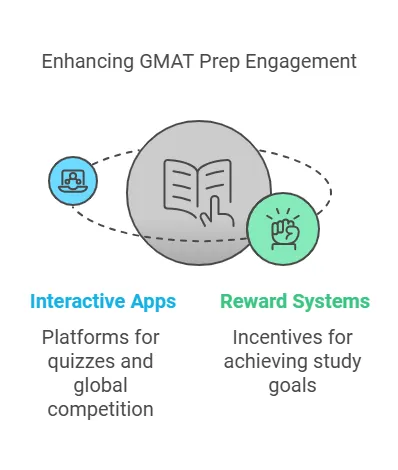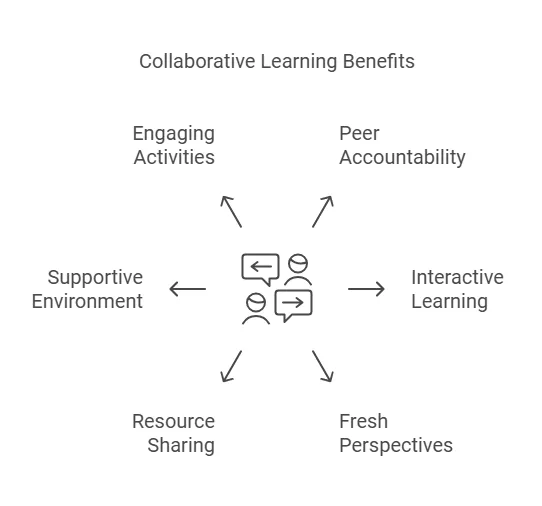How to Make GMAT Prep Fun | Creative Strategies to Stay Engaged
This article explains how to make GMAT prep fun, discussing some of the innovative ways that will turn your studying experience into a fun and enjoyable one. By introducing creativity and variety into your prep routine, you are less likely to suffer from burnout, and you’ll keep focused, ensuring that you don’t falter in achieving your desired goal. Some techniques used in gamifying study materials, thematic sessions, learning in teams, and exploiting multimedia add flavor and drive to the process. The idea is to develop a balanced approach wherein the process of learning becomes delightful, thereby making you confident to tackle the GMAT with interest and zeal. These strategies ensure proper preparation without rendering you fatigued or uninspired.
Overview of the GMAT
The Graduate Management Admission Test, or GMAT, is a standardized test that measures the candidate’s analytical writing, quantitative reasoning, verbal skills, and integrated reasoning. It is a very crucial component of the admissions process at the world’s top business schools, as it offers a uniform way for institutions to evaluate applicants. A good score on the GMAT can not only enhance your application but also open doors to excellent MBA programs that can give your career a great turn.
The challenges of GMAT preparation and the importance of maintaining engagement
Preparing for the GMAT is no easy task. With its rigid structure and time constraints, many test-takers find it difficult to stay motivated and focused over extended preparation periods. The monotony of traditional study methods often leads to burnout or procrastination, making it essential to find ways to keep engagement high and preparation enjoyable.
How to Make GMAT Prep Fun | Study with Fun
👉Utilizing apps and online platforms that offer interactive quizzes and challenges
Leverage apps like Quizlet, GMAT Club, and Magoosh to access interactive quizzes and leaderboards. Many of these platforms offer real-time challenges where you can compete against other test-takers globally, fostering a sense of competition while learning.
👉Setting up a point system or rewards for achieving study milestones
Create a reward system to celebrate small victories. For instance, treat yourself to a favorite snack or an episode of your favorite series after completing a tough practice set. These incentives provide positive reinforcement and make the preparation process enjoyable.

Study Groups and Collaborative Learning
👉The benefits of studying with peers
Studying with peers fosters accountability and makes the learning process more interactive. Peers can offer fresh perspectives on challenging concepts, share resources, and provide moral support during stressful times.
👉Organizing group study sessions with fun activities
Plan group study sessions that include engaging activities like GMAT trivia, speed quizzes, or role-playing exercises for verbal reasoning. Adding an element of play keeps the sessions lively and productive.
👉Sharing resources and strategies in a supportive environment
A collaborative environment encourages participants to share notes, strategies, and tips. Platforms like WhatsApp or Slack can be used for quick updates, resource sharing, and maintaining group momentum.

Themed Study Sessions
👉Creating themes for different study days (e.g., “Math Monday,” “Verbal Friday”)
Themed study days bring structure and variety to your routine. Devote explicit days to specific areas of the GMAT. For example, focus on problem-solving and data sufficiency on “Math Monday” and sentence correction and critical reasoning on “Verbal Friday.”
👉Incorporating relevant snacks, decorations, or music to enhance the experience
Make your themed sessions immersive by adding relevant elements. Play instrumental music to boost concentration during “Math Monday” or enjoy word games with snacks like alphabet cookies for “Verbal Friday.”
👉Encouraging creativity in how topics are presented and discussed
Use storytelling to explain concepts or create mind maps to summarize topics. Presenting information in innovative ways makes it more memorable and enjoyable.
Incorporating Multimedia Resources
👉Using videos, podcasts, and online courses to diversify learning methods
Multimedia resources break the monotony of textbook learning. Platforms like YouTube offer engaging tutorials on GMAT topics, while podcasts like “The GMAT Prep Now” provide valuable insights during commutes.
👉Engaging with entertaining content related to GMAT topics
Find TED Talks, webinars, or articles that indirectly enhance skills like logical reasoning or data interpretation. For example, a decision-making TED Talk will help the user enhance critical thinking.
👉Exploring educational games and simulations that reinforce concepts
Educational games like logic puzzles, math apps, or reading comprehension simulations may make practice sessions less daunting and even enjoyable.
Setting Up a Study Challenge
👉Making of personal competitions or challenges with friends
Conduct turn preparation as a friendly competition. Do weekly challenges such as attaining a certain number of questions or achieving a particular score in mock tests. Compete with friends to add fun.
👉Tracking of progresses and celebration of milestones
Maintain a visual tracker of progress such as a bar chart or checklist. Celebrate small milestones such as movie night or a day-off.
👉Use social media to share your progress and inspire others
Share your progress on social media. This will keep you accountable and inspire others. Use the GMAT communities on LinkedIn or Reddit to exchange tips and stay motivated.
Mindfulness and Stress Relief Techniques
👉Incorporating mindfulness practices to enhance focus and reduce anxiety
Mindfulness techniques like meditation, deep breathing, or yoga can improve focus and alleviate stress. Spend 5-10 minutes practicing mindfulness before study sessions to enhance concentration.
👉Engaging in physical activities or hobbies to balance study time
The renewal of the mind and body could be achieved through physical exercises, jogging, swimming, or dancing. On the other hand, pursuing hobbies, like painting or playing instruments, gives one a refreshing break from study routines.
👉Learning ways to relax that may be used in breaks to study
Try relaxation techniques during study breaks, like stretching, listening to soft music, or guided imagery. These help recharge and make one more productive.
Rewarding Yourself
👉Having a reward system for completing study goals
Specific goals must be set, and an appropriate reward must be chosen. For example, dinner outing after finishing a full-length mock test or a small gift for mastering a tough topic.
👉Having fun activities or treats in advance as rewards
Create reward systems by including treats within the routine. For instance, treat yourself with a weekend getaway or spa day upon accomplishing significant milestones, like covering the syllabus or hitting the desired practice target.
👉Reflecting on progress and celebrating milestones
Take time to review your journey and celebrate how far you’ve come. This reflection not only boosts confidence but also renews your commitment to your goals.
Seeking Inspiration and Motivation
👉Reading success stories from individuals who have done well in the GMAT
Success stories provide inspiration and insights. Read blogs or watch videos of test-takers who, through their experiences, have overcome challenges to do well in the GMAT.
👉Finding motivational quotes or videos to boost morale
Keep motivational quotes visible in your study space or watch inspiring videos to keep yourself inspired. Quotes like “Success is the sum of small efforts repeated day in and day out” can help fire up determination.
👉Connecting with mentors or coaches for guidance and encouragement
Mentors, teachers, or GMAT coaches will be able to give personalized tips, encouragement, and strategies to overcome hurdles.
Final Thought | How to Make GMAT Prep Fun
Start small by implementing one or two of these strategies and gradually expand your toolkit. Success on the GMAT requires dedication and hard work, but it doesn’t have to be tedious. By balancing effort with enjoyment, you can approach the exam with confidence and enthusiasm, setting the stage for a successful outcome.




